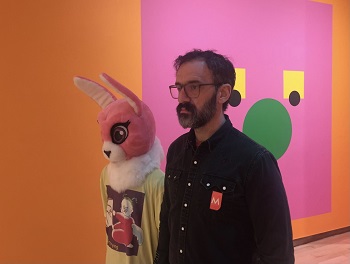
Eternal Life in the Gauzy and Eternal Golden Hour of the Past
Contributor’s Marginalia: Jason Labbe responding to Rochelle Hurt’s poem “For E, Who Asks Me How I Loved So Many Before Her”
The American sonnet is my favorite form, one whose nature is to multiply. When I encounter new ones in my daily reading, the form seldom (maybe never) strikes me as unoriginal or lacking possibilities simply because it’s been done so many times before. I want to see: How can the poet work their subject inside the loose constraint of fourteen lines? What is the crosstalk between those sonnets of a single author and/or the countless others that have been written? One sonnet makes many. Terrance Hayes, Ted Berrigan, Bernadette Mayer—all touchstones for me as I write my own brakes-off collection of fourteen-liners. One of my sonnets is lucky to land in the new 32 Poems, twelve pages before Rochelle Hurt’s dynamite piece, “For E, Who Asks Me How I Loved So Many Before Her.” Hurt’s poem is not just a sonnet, it is also a list poem, another approach I love which is genetically programmed to accumulate. Maybe each list poem is an entry to a greater list, a single collective entity we are all invited to add to. Maybe all the sonnets belong to a greater sequence, a sort of master cosmic document. For now, my poem is fortunate to have Hurt’s company.
Hurt’s sonnet has me reflecting: How do we process former loves while a current one inhabits their own territory? No matter what, somehow, we continue to live with old loves, even the ones we have not seen or spoken to in years. Some may be dead now—or dead to us—but that doesn’t stop us from communicating. They take mythic forms in the realm of memory, they shape-shift, and as we live our subsequent lives, they can still threaten to destroy us. (Who doesn’t want to be destroyed by love?) For Hurt’s speaker, as metaphor and personal mythology merge, the dangerous love lives on as “a truck rolling toward me in reverse,” or “a razor on my forearm.” Alongside these threats also lie the beautiful mysteries and turn-ons: “One I loved like an old photo in an antique store,” or “One was an ice chip under a hot tongue. I was the tongue.” The repetition of the word “One” throughout the poem dignifies each of these past loves and makes them singular, even while Hurt savagely dispels the belief that we are each destined one true love or that we can only love one person at a time. I don’t know a single poet who isn’t eternally married to their past. Sometimes the true infidelity is in our love of the present.
The title brings up a certain burning jealousy we all recognize. Who hasn’t wanted to be someone’s first, whatever that may mean? It is normal to want to possess everything about someone, a desire that burns most acutely in those sleepless moments we recognize the truth: Some pieces of our beloved can never belong to us. If we tell our current love of the past, the ice chip, they wish they had been the one who was melting, even though it would guarantee their own fatality. When the ice chip inevitably melts, absorbed by our body before we sweat it out, we can hardly survive without reconciling the tragedy of its temporality, so we grant it eternal life in the gauzy and eternal golden hour of the past. But then, the darkness that follows. We leave the window open at night; we welcome their haunting. As with all of my favorite poems and songs, I am jealous. I wish I were smart or skilled or deep enough to have written this poem. Even better, I wish I were the object of these lines, these metaphors, any one of them—or all at once: “a sun-drunk house that held all the others inside it.” I wish this poem were mine.
